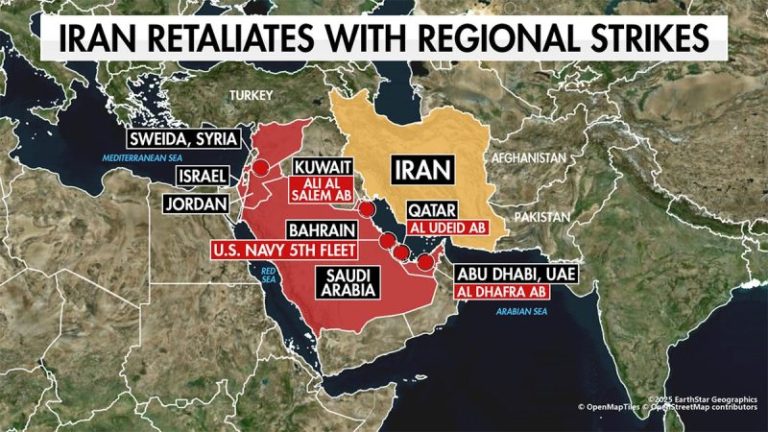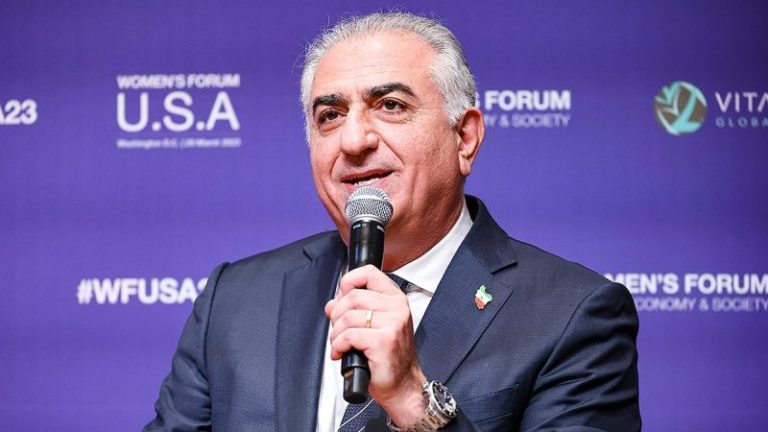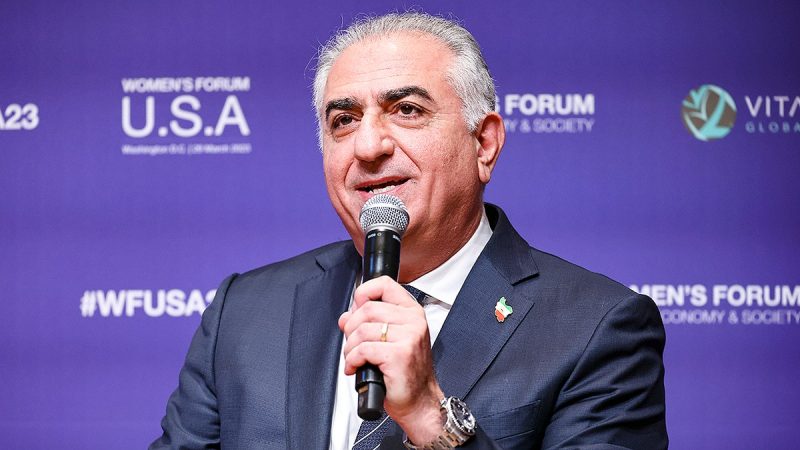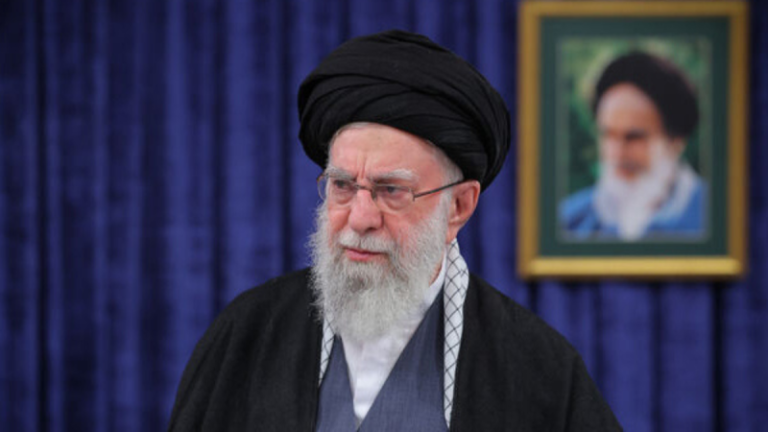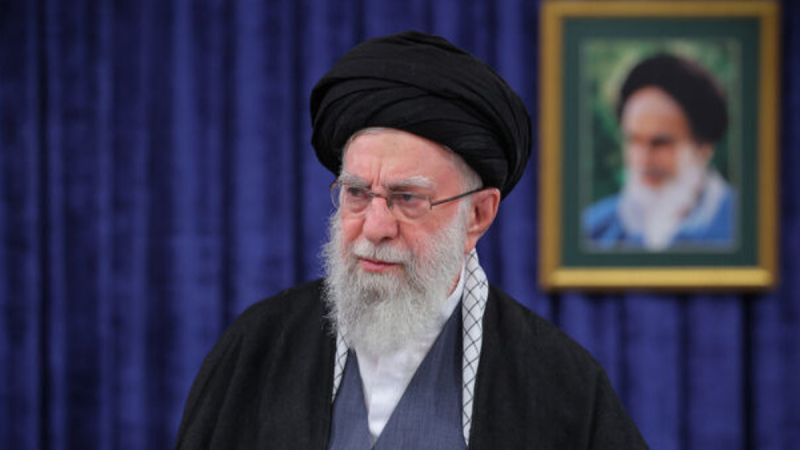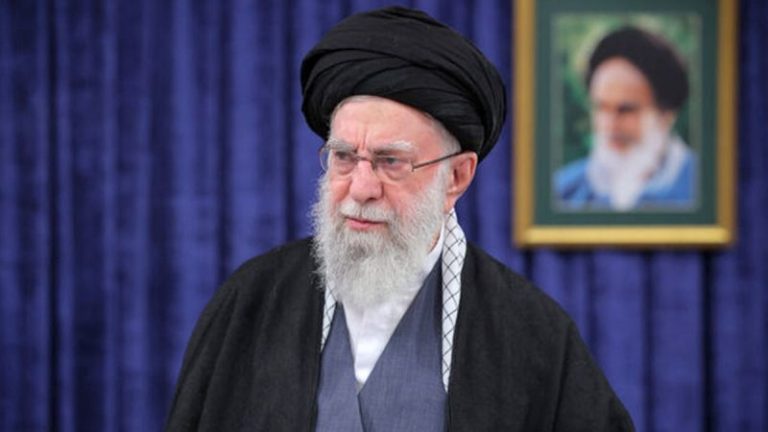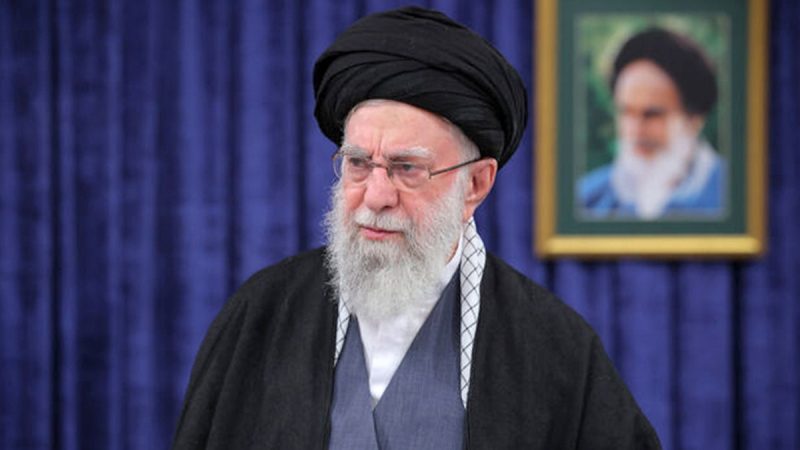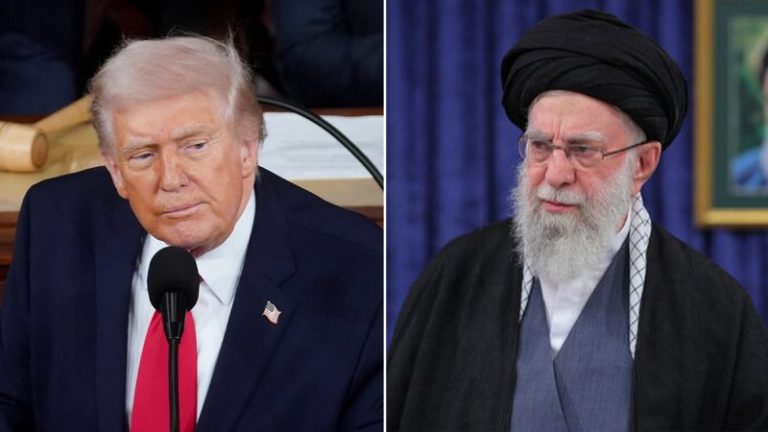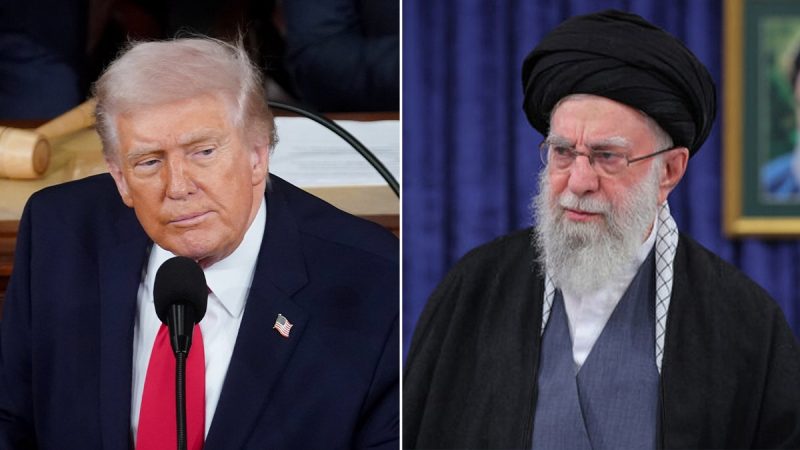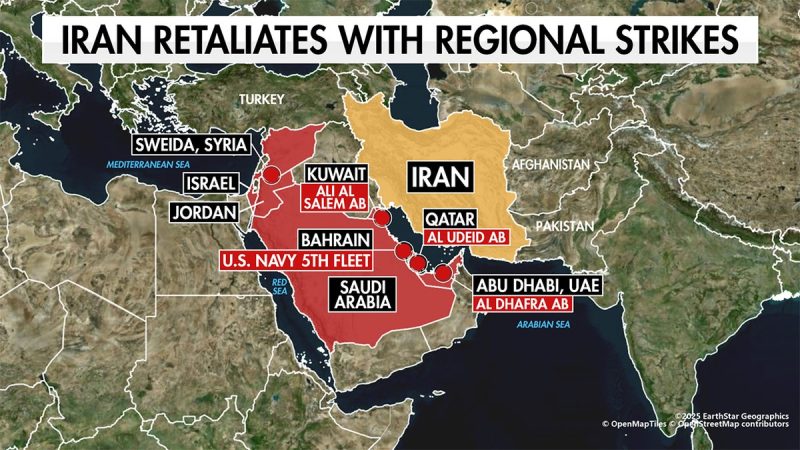
Arab nations are sounding off against Iran after the regime launched strikes against U.S. interests in neighboring countries in the region in retaliation for U.S.-Israeli joint strikes against Iran’s leaders.
The Iranian response targeted all U.S. bases in the Gulf, except for U.S. bases in Oman, Fox News’ Jennifer Griffin reported, since the Omani foreign minister had tried to mediate the nuclear talks in Geneva, even flying to Washington, D.C., to meet Vice President JD Vance at the White House on Friday to try to avert what is quickly turning into a regional war.
Griffin reported that approximately 40 missiles had landed in Israel. Meanwhile, the U.S. military in Iraq intercepted at least one missile targeting U.S. facilities. Additionally, Iran appeared to hit the U.S. Navy’s Fifth Fleet, but no casualties were reported.
Iran also launched missiles at Saudi Arabia and Jordan, where the U.S. has squadrons of advanced fighter jets, Griffin reported.
Qatar, Saudi Arabia, Jordan and the United Arab Emirates were among the Gulf states that condemned the Iranian strikes, with many saying they reserve the right to defend themselves and respond accordingly to attacks on their sovereign territories.
Qatar’s Foreign Ministry said it reserves its ‘full right’ to defend itself after what it described as Iranian aggression targeting Qatari territory. Its Defense Ministry said it ‘successfully thwarted a number of attacks targeting the country’s territory’ after multiple rounds of alerts sounded. Authorities reported no immediate injuries or damage in residential areas.
Saudi Arabia’s Foreign Ministry said it affirmed ‘its full solidarity with and unwavering support for the brotherly countries’ and warned of ‘grave consequences resulting from the continued violation of states’ sovereignty and the principles of international law.’
The United Arab Emirates’ Ministry of Defense said the country ‘was subjected to a blatant attack involving Iranian ballistic missiles,’ adding that air defense systems ‘successfully intercepted a number of missiles.’ Authorities said falling debris in a residential area caused ‘one civilian death of an Asian nationality’ and material damage.
The ministry called the attack ‘a dangerous escalation and a cowardly act that threatens the safety of civilians and undermines stability,’ and stated the UAE ‘reserves its full right to respond.’
Jordan’s foreign minister wrote a series of posts on X, saying that King Abdullah II ‘condemns the attack on the territories of Jordan, and any attacks on Arab countries,’ expressing Jordan’s ‘solidarity with the brotherly Arab countries in confronting any aggressions that affect their sovereignty, security, and stability.’
Lebanon’s Ministry of Foreign Affairs said it also ‘strongly condemns the Iranian attacks,’ adding that it ‘affirms its full solidarity with these fellow Arab States and firmly rejects any violation of their sovereignty, any threat to their security, or any action undermining their stability.’
Meanwhile, the Omani Foreign Ministry condemned the U.S.-Israeli operation against Iran.
‘The Ministry of Foreign Affairs expresses the Sultanate of Oman’s profound regret over the military operations launched by Israel and the United States of America against the Islamic Republic of Iran, warning of the danger of the conflict expanding into consequences that cannot be rectified in the region,’ the Omani Foreign Ministry said in a statement, according to X’s translation.
‘The Sultanate of Oman considers this action to be in contravention of the rules of international law and the principle of resolving issues through peaceful means rather than hostile means, the shedding of blood, and calls on all parties to immediately suspend military operations, while urging the United Nations Security Council to convene an urgent meeting to impose a ceasefire and for the international community to take a clear stance in support of international law,’ it added.
Fox News Digital’s Efrat Lachter contributed to this report.

